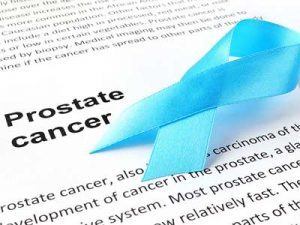- Home
- Editorial
- News
- Practice Guidelines
- Anesthesiology Guidelines
- Cancer Guidelines
- Cardiac Sciences Guidelines
- Critical Care Guidelines
- Dentistry Guidelines
- Dermatology Guidelines
- Diabetes and Endo Guidelines
- Diagnostics Guidelines
- ENT Guidelines
- Featured Practice Guidelines
- Gastroenterology Guidelines
- Geriatrics Guidelines
- Medicine Guidelines
- Nephrology Guidelines
- Neurosciences Guidelines
- Obs and Gynae Guidelines
- Ophthalmology Guidelines
- Orthopaedics Guidelines
- Paediatrics Guidelines
- Psychiatry Guidelines
- Pulmonology Guidelines
- Radiology Guidelines
- Surgery Guidelines
- Urology Guidelines
High consumption of dairy products linked to increased prostate cancer risk: Mayo Clinic research

CHICAGO—High consumption of dairy products associated with increased risk of prostate cancer, Mayo researchers have found. The comprehensive review of studies has shown that decreased risks of prostate cancer are associated with plant-based diets. In the past studies have shown that dairy products are the primary source of calcium in Western countries, where rates of prostate cancer are high. Similarly, there are lower rates of prostate cancer in Asian countries, where the intake of dairy products is low.
The present study has found that high consumption of dairy products, like milk and cheese, seems to be associated with an increased risk of prostate cancer. The new research has been published in the Journal of the American Osteopathic Association.
According to the American Institute of cancer research, Prostate cancer is the second most commonly occurring cancer in men and the fourth most commonly occurring cancer overall. There were 1.3 million new cases in 2018. Age-adjusted incidence rates of prostate cancer have increased dramatically and this is largely because of the increased availability of screening for prostate-specific antigen (PSA) in men without symptoms of the disease.
The study authors found no clear association of increased risk of prostate cancer linked to other animal-based foods, including red and white meat, processed meats and fish. However, they identified a decreased risk of prostate cancer associated with plant-based diets.
"Our review highlighted a cause for concern with high consumption of dairy products," says John Shin, MD, a Mayo Clinic oncologist and lead author on this study. "The findings also support a growing body of evidence on the potential benefits of plant-based diets."
The researchers reviewed 47 studies published since 2006, comprising more than 1,000,000 total participants, to better understand the risks of prostate cancer associated with plant- and animal-based foods. While patterns of association emerged, Dr. Shin says more investigation is needed to understand the nature and strength of those associations.
For further reference log on to:
http://www.osteopathic.org/
associated withcheeseconsumptiondairy productshighincreasedIncreased calciumJournal of the American Osteopathic Associationmilkprostate cancerrisk
Source : Journal of the American Osteopathic AssociationNext Story
NO DATA FOUND

Disclaimer: This site is primarily intended for healthcare professionals. Any content/information on this website does not replace the advice of medical and/or health professionals and should not be construed as medical/diagnostic advice/endorsement or prescription. Use of this site is subject to our terms of use, privacy policy, advertisement policy. © 2020 Minerva Medical Treatment Pvt Ltd